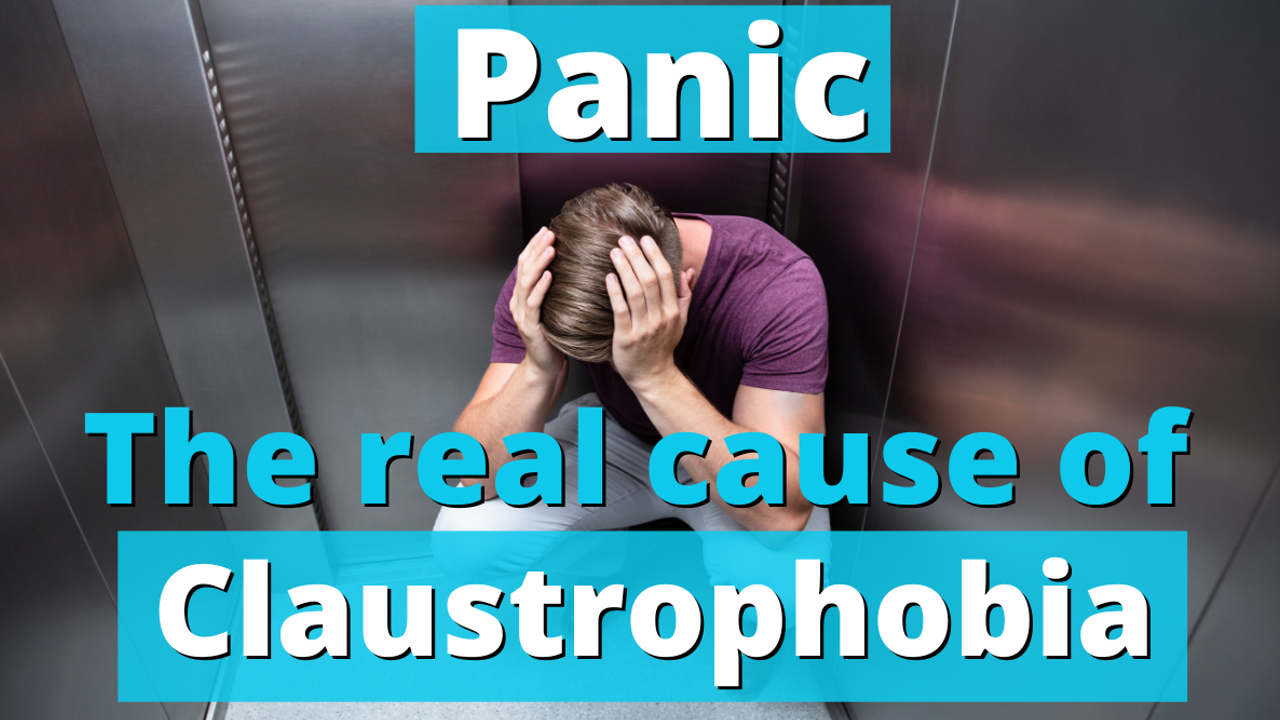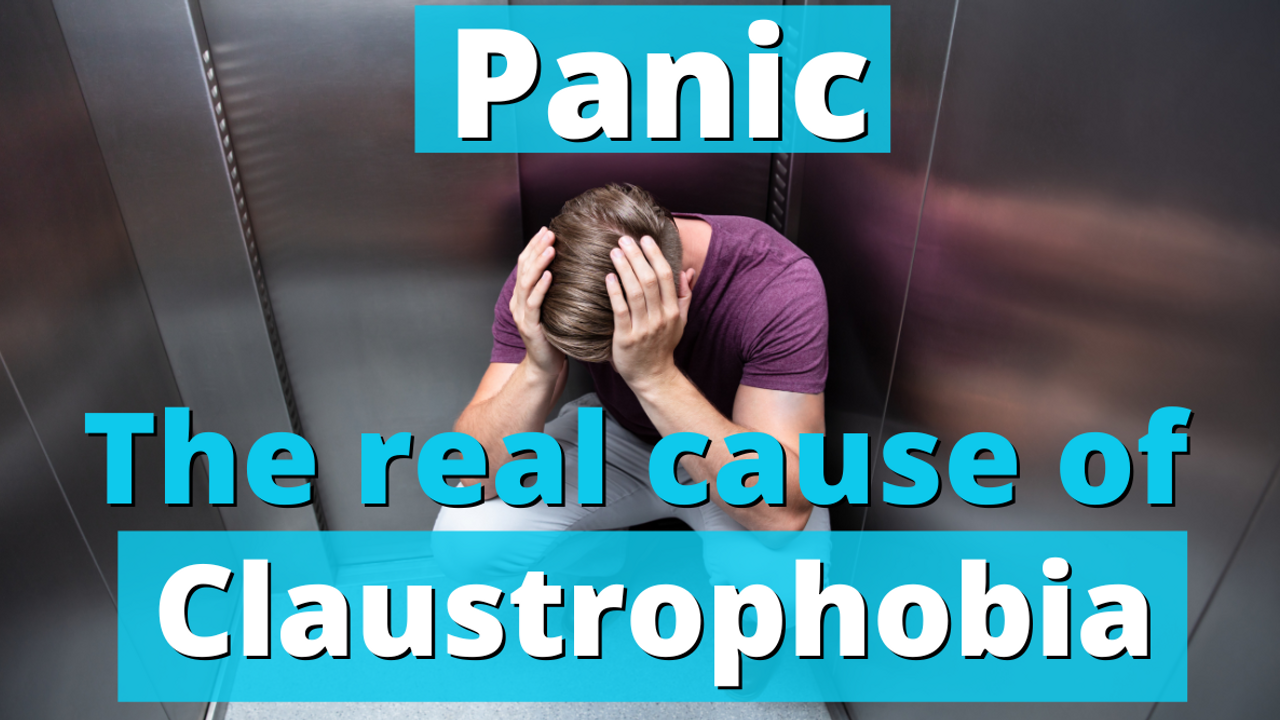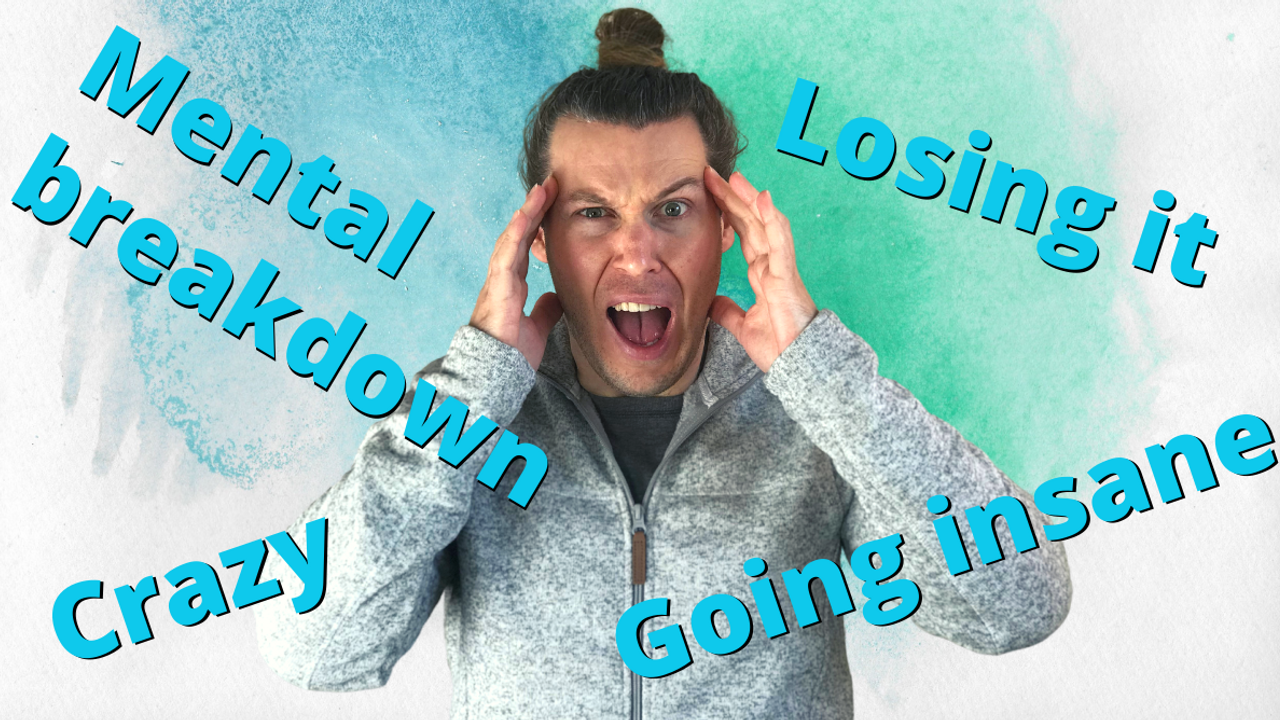Blog
Agoraphobia and Panic Attacks (What Causes Agoraphobia?)
Today's focus is on Agoraphobia – an anxiety disorder quite similar to Claustrophobia. In that, the cause is generally due to panic, or a fear of fear.
If you’d prefer to listen or watch me talk, so you can go about your day, click here:
This is a condition, where you begin to fear situations where escape might be difficult, or that help might not be available in the case of a panic attack. And, if the condition becomes more severe, this looks like having trouble leaving your home due to the fear that doing so may cause you to panic.
It’s estimated that more than a third of people with agoraphobia have trouble leaving their home and are unable to study or work as a result. Hence, why Agoraphobia’s translation from Greek is “fear of the marketplace”, the general out-and-about are where you buy what you need and work to earn money, which becomes so tricky with Agoraphobia.
Let's delve into the intricacies of this often debilitating condition
Agoraphobia is most noticeable by it...
The Cause of Claustrophobia

Welcome, my friends, to my latest blog post, where we’ll dive deep into the subject of Claustrophobia, a fear of confined or crowded spaces, and how it links to panic attacks.
Many people don't realize that claustrophobia is one of the more impairing and disruptive phobias due to crowds and tight spaces, like elevators and public transport, being a common occurrence in our modern day-to-day lives. In fact, about 2.2% of the total population experiences claustrophobia, and it’s more common among women than men.
The intensity of claustrophobia can vary from person to person, but for some, even the thought of being in a confined space can be enough to make you squirm. Some common triggers of claustrophobia include elevators, public transport, markets, and shopping malls, small cafes, airplanes, and rooms with sealed or closed windows, just to name a few.
Symptoms of Claustrophobia
Now, let's talk about the effects of claustrophobia.
Some people may only experience mild anxiety in the...
Panic - The Real Cause of Claustrophobia

Claustrophobia – a fear of confined or crowded spaces - has a little known connection to Panic Attacks.
Keep reading to find out more about the causes of Claustrophobia and how it links to panic.
The intensity of Claustrophobia can vary from one person to another.
It can cause severe anxiety and panic attacks.
And for some who struggle with claustrophobia, even the thought of being in a confined space may be enough to make you squirm.
In terms of numbers – about 2.2% of the total population experience claustrophobia. And it is more common among women than men.
It generally starts for people around 20 years old.
And most people don’t get any support for it (their entire lives), despite the fact that it’s one of the more impairing and disruptive phobias due to crowds and tight spaces (like elevators) being a common occurrence in our modern day-to-day lives.
Common Triggers
In fact, here are some of the common triggers of claustrophobia that will cause a spike in anxiety. Thin...
Am I going crazy?

Sometimes when people come to see me, they can be worried that, given the wrong push, they’ll go crazy.
They’ll end up hurting someone, embarrassing themselves, or thrown in the looney bin.
There are actually 3 distinct types of anxiety that I see cause this fear of going insane.
- Panic
- Generalised Anxiety
- OCD
With Panic fears, sometimes people can be afraid that if their anxiety goes any higher, they’ll lose it. They’ll go insane, or lose the plot.
This can be a fear of temporary insanity, where they panic and run out of a board meeting or punch and kick people in a desperate effort to leave a plane.
Or it can be a fear of more permanent loss of faculties, resulting in drooling in bed or in a Psych ward for the rest of their lives.
Now with Generalised Anxiety, we’re talking about what’s called Type 2 Worry.
This is when someone worries about the effect of all the worrying they’re doing.
In this instance, it’s the worry that all this stress from worrying will cause a ...
How to Tell the Difference Between a Panic Attack and a Heart Attack

It’s not uncommon for people to have anxiety about Heart Attacks, or a Heart Attack fear.
Especially amongst people struggling with Panic, as Panic Attacks can feel very similar.
Often you’re left wondering, “Am I having a Heart Attack or a Panic Attack?"

You might notice your chest tighten, your heart start pounding or fluttering and you start to sweat profusely.
Often people’s minds start racing to quickly figure out what’s going on, and with far more publicity on heart attacks than panic attacks, it’s easy for the mind to jump to that conclusion.
It’s that much more frightening and confusing if you’ve never had either a heart attack or panic attack. But even if you have had panic attacks before, you may wonder, “how do I know it's a panic attack and not a heart attack?”
So what’s the difference?
What’s a Heart Attack?
A heart attack is when part of your heart doesn’t get enough blood. This usually happens because an artery that supplies blood to the heart is blocked...


